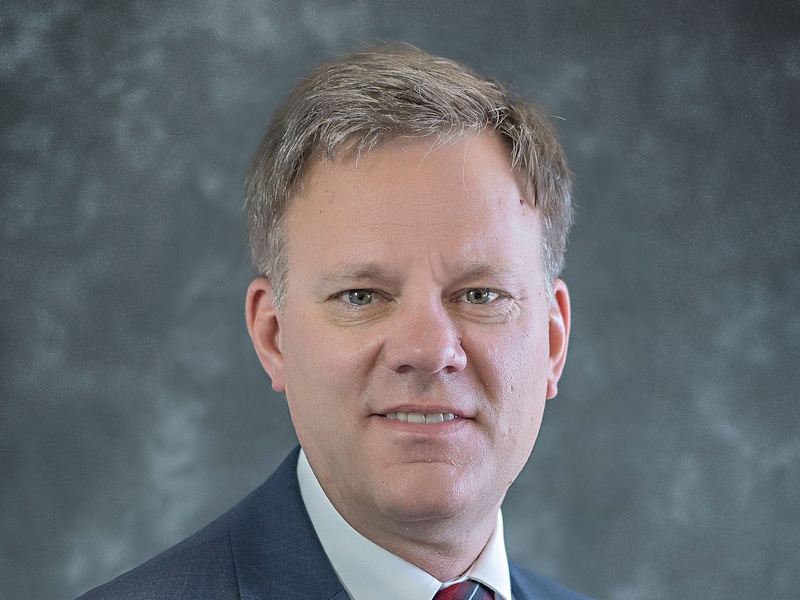Gov. Evers Launches Housing Program to Support Individuals Experiencing Homelessness and Opioid Use Disorders
New Recovery Voucher Program will use Opioid Settlement Funds for affordable, safe, stable housing
MADISON — Gov. Tony Evers today announced the launch of the Recovery Voucher Program in partnership with the Wisconsin Department of Health Services (DHS) and the Wisconsin Department of Administration (DOA). The effort will be supported by a portion of Wisconsin’s McKinsey & Company opioid settlement funds, which provided the state with $31 million to address the effects of the opioid epidemic. An initial $2 million investment into the Recovery Voucher Program will help provide access to affordable, safe, and stable housing for individuals who are experiencing homelessness and have been diagnosed with opioid use disorder (OUD).
“Basic needs, like housing or food, need to be met before anyone can overcome an illness, including opioid use disorder. Too often individuals in treatment and recovery for substance use disorder lack the safe and stable housing necessary to support them in their journey,” said DHS Deputy Secretary Deb Standridge. “We are grateful that Gov. Evers recognizes this and supports the Recovery Voucher Program to allow people with opioid use disorder to have a firm foundation on their journey toward recovery.”
DOA’s Division of Energy, Housing and Community Resources (DEHCR) will administer the program, leveraging supportive housing expertise and strong existing partnerships with the Continuum of Care (CoC) Program in Milwaukee, Dane, and Racine counties, as well as local coalitions serving the other 69 counties across the state.
“We’re proud to partner with DHS and local agencies to ensure that folks get their basic housing needs met through this important program,” said DOA Secretary-designee Kathy Blumenfeld. “Safe housing and shelter are critical for recovery, as they are for every Wisconsinite.”
Housing agencies chosen through a competitive grant process will begin working with Recovery Residences starting Jan. 1, 2023. Wisconsin residents diagnosed with OUD who have been homeless or are at risk of homelessness will have the opportunity to continue their journey to sober living through access to Recovery Residences.
More information on the program is available here.
An online version of this release is available here.
NOTE: This press release was submitted to Urban Milwaukee and was not written by an Urban Milwaukee writer. While it is believed to be reliable, Urban Milwaukee does not guarantee its accuracy or completeness.
More about the Opioid Crisis
- Milwaukee County Executive David Crowley Announces Over $9 Million for Initiatives to Combat Opioid Epidemic - County Executive David Crowley - Jul 17th, 2025
- AG Kaul, 45 Other Attorneys General Plan to Join $720 Million Settlement with Eight Opioid Drug Makers - Wisconsin Department of Justice - Jul 14th, 2025
- Attorney General Kaul Announces Consent Judgment with Kroger Over Opioid Crisis - Wisconsin Department of Justice - Mar 21st, 2025
- Baldwin Votes to Strengthen Penalties, Step Up Enforcement Around Deadly Fentanyl - U.S. Sen. Tammy Baldwin - Mar 17th, 2025
- Wisconsin Communities Get Millions From Opioid Settlement as Deaths Decline - Evan Casey - Mar 1st, 2025
- MKE County: County Creates Easy Public Access To Overdose Data - Graham Kilmer - Feb 18th, 2025
- Milwaukee County Executive David Crowley and the Office of Emergency Management Launch New Overdose Dashboard - County Executive David Crowley - Feb 18th, 2025
- Fitzgerald Advances Legislation to Fight Opioid Epidemic - U.S. Rep. Scott Fitzgerald - Feb 6th, 2025
- Milwaukee Is Losing a Generation of Black Men To Drug Crisis - Edgar Mendez and Devin Blake - Jan 31st, 2025
- Milwaukee County’s Overdose Deaths Declined For Second Straight Year - Evan Casey - Jan 27th, 2025
Read more about Opioid Crisis here
Mentioned in This Press Release
Recent Press Releases by Gov. Tony Evers
Gov. Evers, WisDOT Announce Over $174 Million in Quarterly Transportation Aids to Improve Local Roads
Jul 14th, 2025 by Gov. Tony EversAnnouncement comes as Gov. Evers secures increased investments in the state’s General Transportation Aids and additional investments in local roads in 2025-27 Biennial Budget























